May 23 Chitra Padapuja
May 23, 2021Jai Gurudeva!
Jai Kailasa Parampara!
Today the mathavasi's enjoyed their monthly padapuja for Gurudeva during the chitra nakshatra. Yogi Jayanatha and Nirvani Tejadevanatha performed the padapuja to Gurudeva's tiruvadi, pouring milk, yogurt, honey and other prana-filled substances over the holy sandals. Aum.
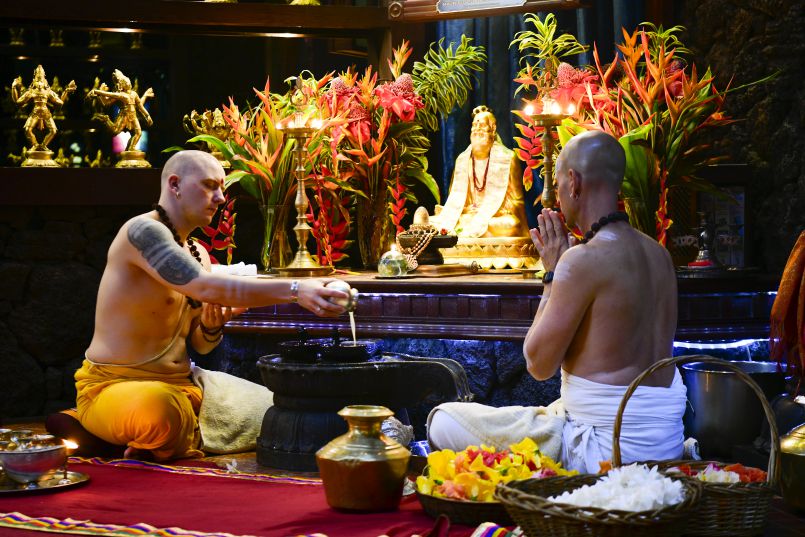
\"One of the great joys of Hinduism is dharma. What is dharma?\"
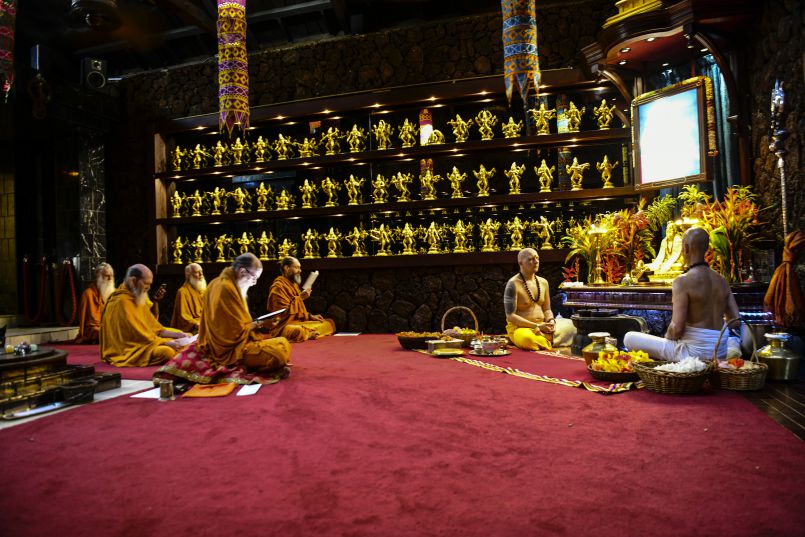
Dharma is to the individual what its normal development is to a seed--the orderly fulfillment of an inherent nature and destiny.
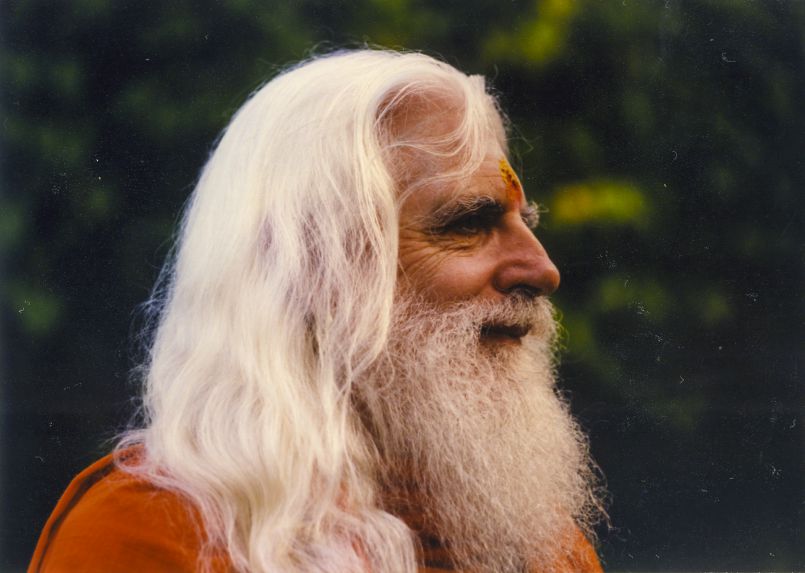
Dharma means merit, morality, good conduct, religious duty and the way of life of the wise person.
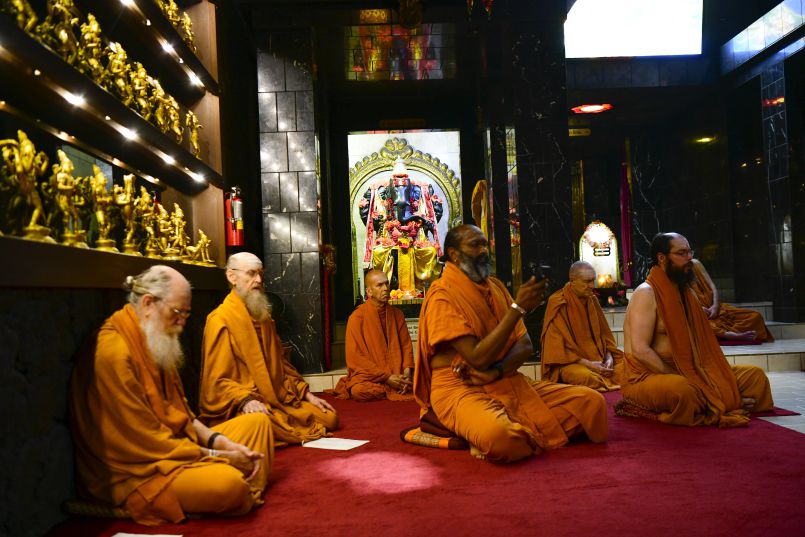
When people fulfill their dharma, they fulfill the very purpose of their life; and when they act against their dharma, they create new karmas.
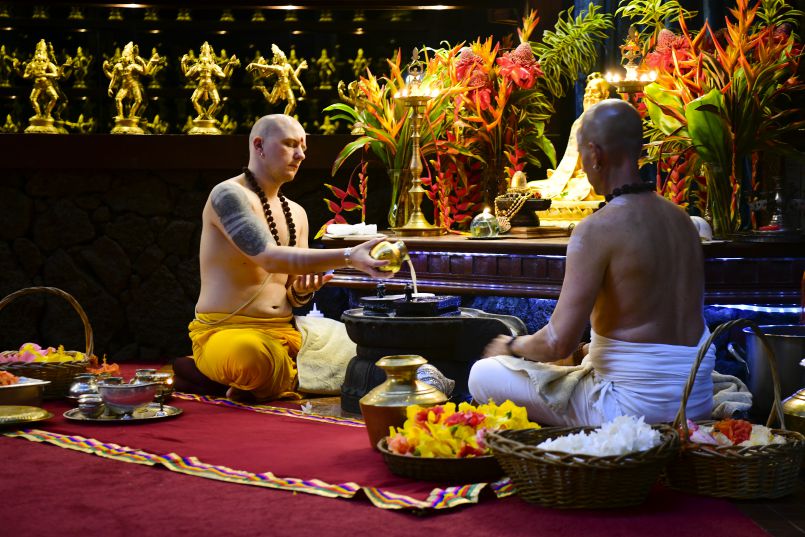
Just as we are born in a physical body with a certain outward appearance, our dharma is a certain accumulated pattern. We are expected to live through this dharma during a lifetime, understanding that all persons can be in their rightful place, doing their rightful dharma at the right time.
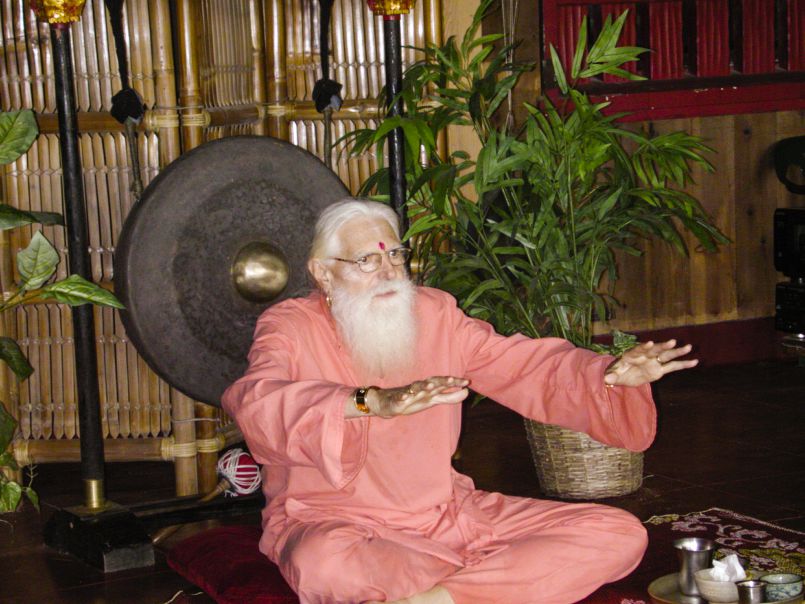
The Hindu has this understanding. It\
s inbred. It offers a certain contentment in knowing that there is a rightful place for each soul in this vast universe.'

Dharma is determined by the accumulated patterns of karma, the samskaric reactions to the experiences of karma throughout all the past lives, the sum of impressions that make up the seeds yet to be sprouted, which must be worked out through prayer, meditation, sadhana or tapas if they are not beneficial, but allowed to sprout if they are beneficial.
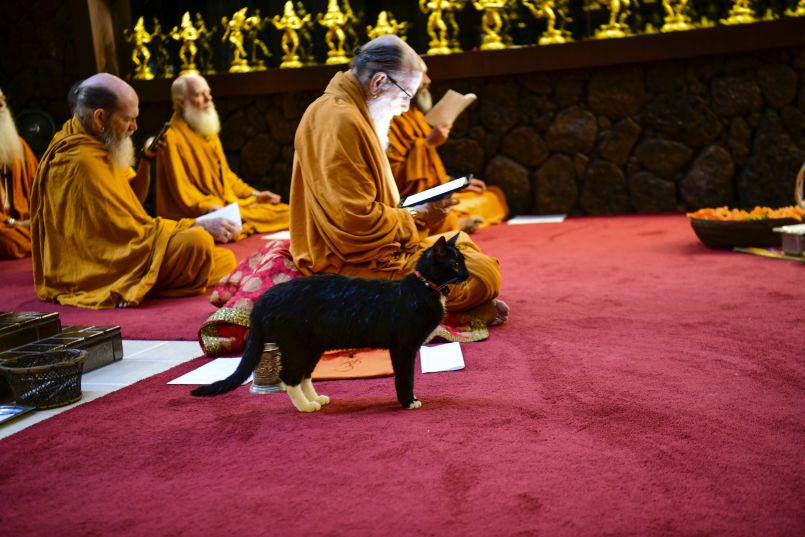
These seeds, all collected together, make up the dharma of each individual.
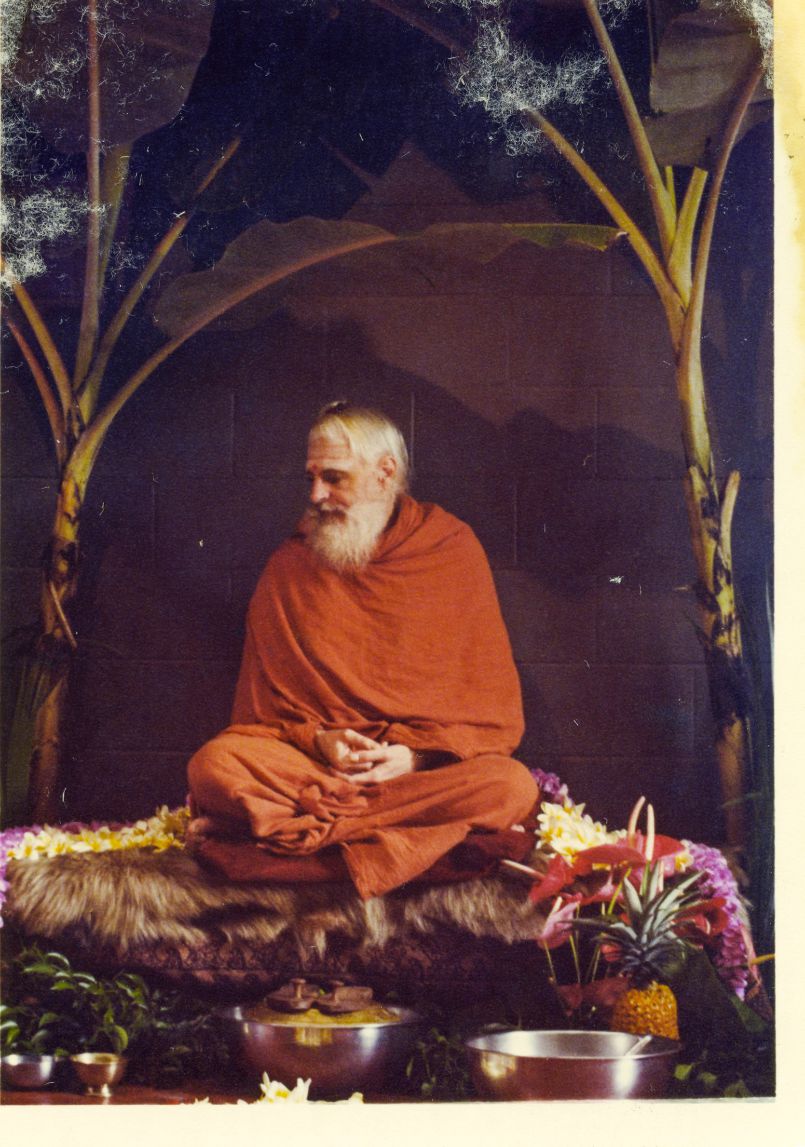
There are some who do not yet have a precise dharma. They have not collected up into themselves enough merit or demerit. Their options are great.
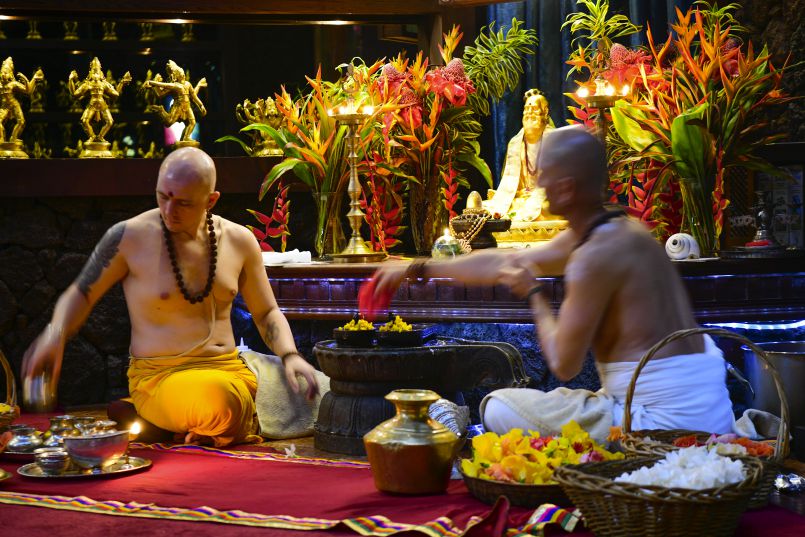
They are still making--through their actions--impressions within their own minds in order to gather them together, to firm up their own mind to form a dharma, to fall into a certain kind of pattern.
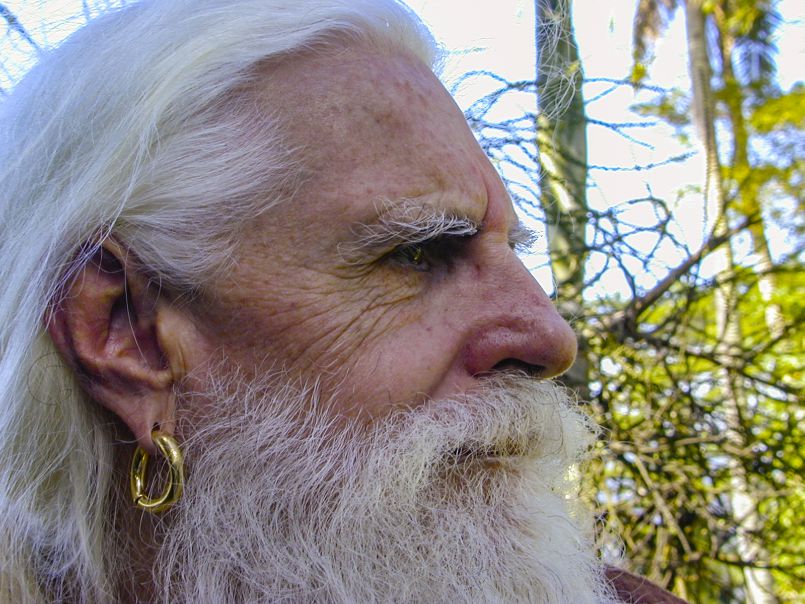
Dharma is the heritage of all Hindus. It is working for the divine beings in the Second World and the Gods within the Third World.
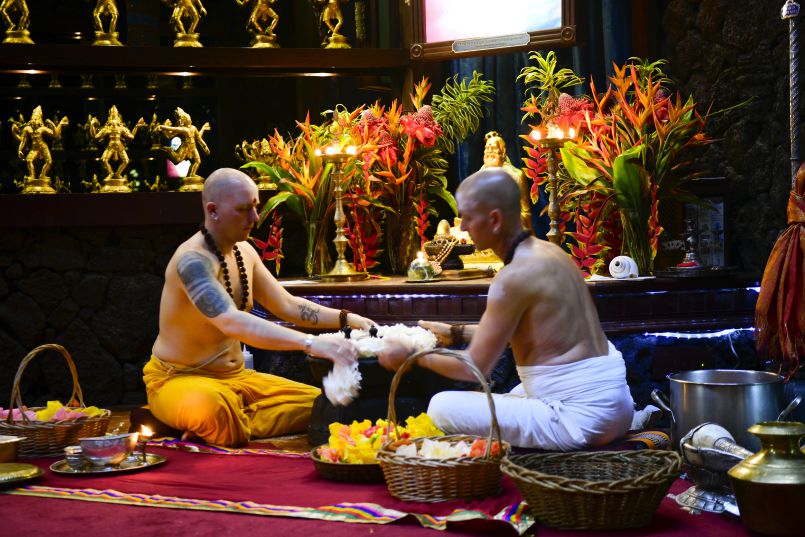
Hindu Dharma is working for the Gods, as opposed to working and living for our own personal wants and needs.
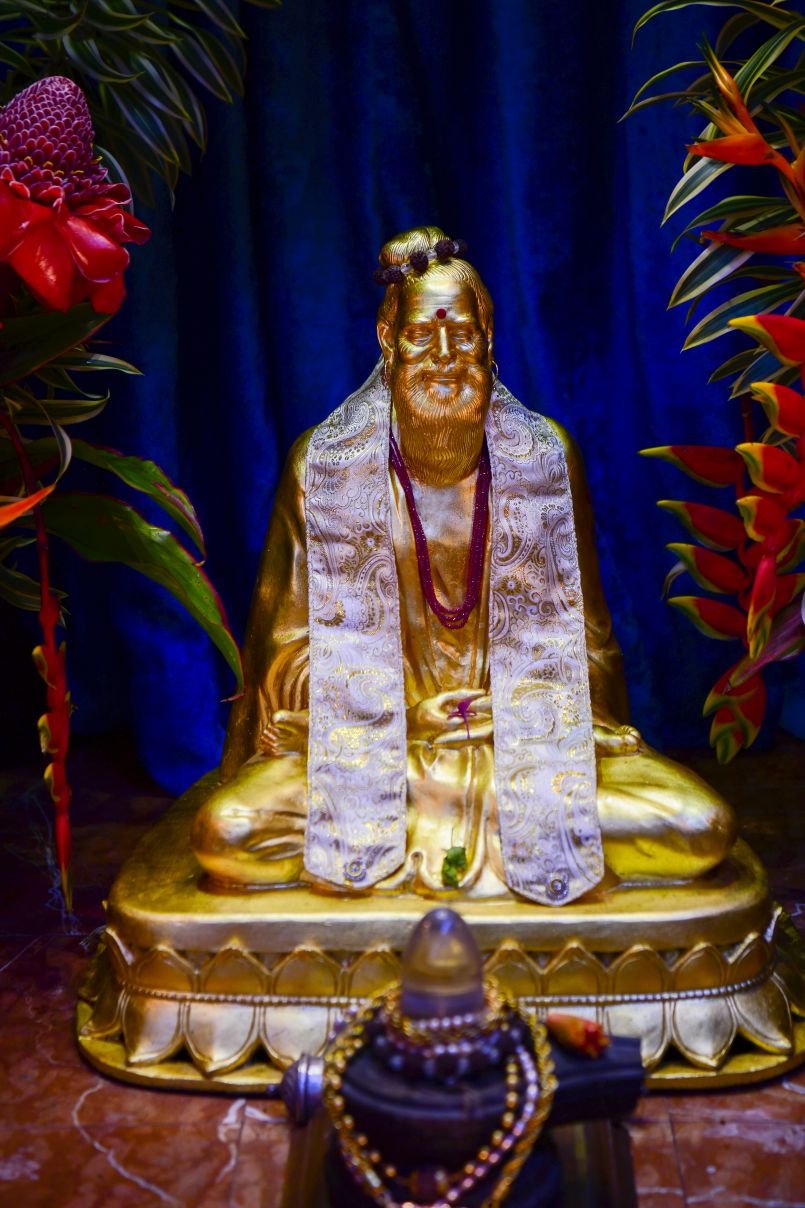
Performing one\
s dharma properly is working in harmony with the divine plan of the universe, as laid out by the Gods.'
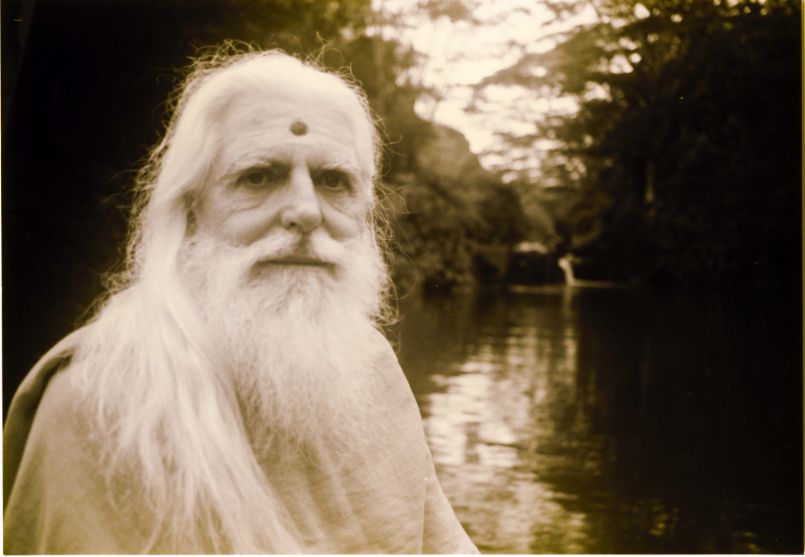
Working for the Gods, being their employee, their servant or their slave, and not working for one\
s personal self, must be the prime occupation in life, whether the Hindu is a farmer, merchant, soldier or a king, a peasant, a sadhu or a rishi.'
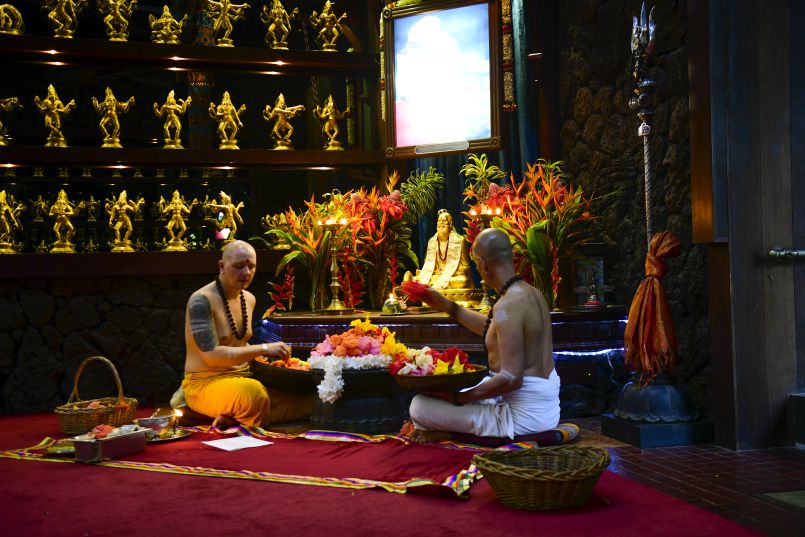
All work done in the right consciousness, performing the right dharma, is in service of the Gods and is work of the Gods by the servants of the Gods.
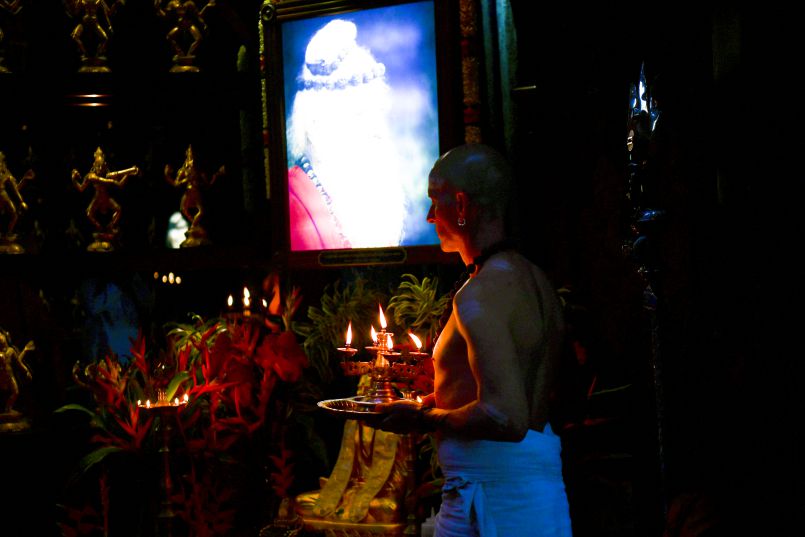
Working for one\
s religion, for the Deities and the devas, should be our occupation twenty-four hours a day, every day, during our waking hours on the physical plane and on the inner astral plane and higher mental planes at night. We should continue this work with an unbroken continuity.'
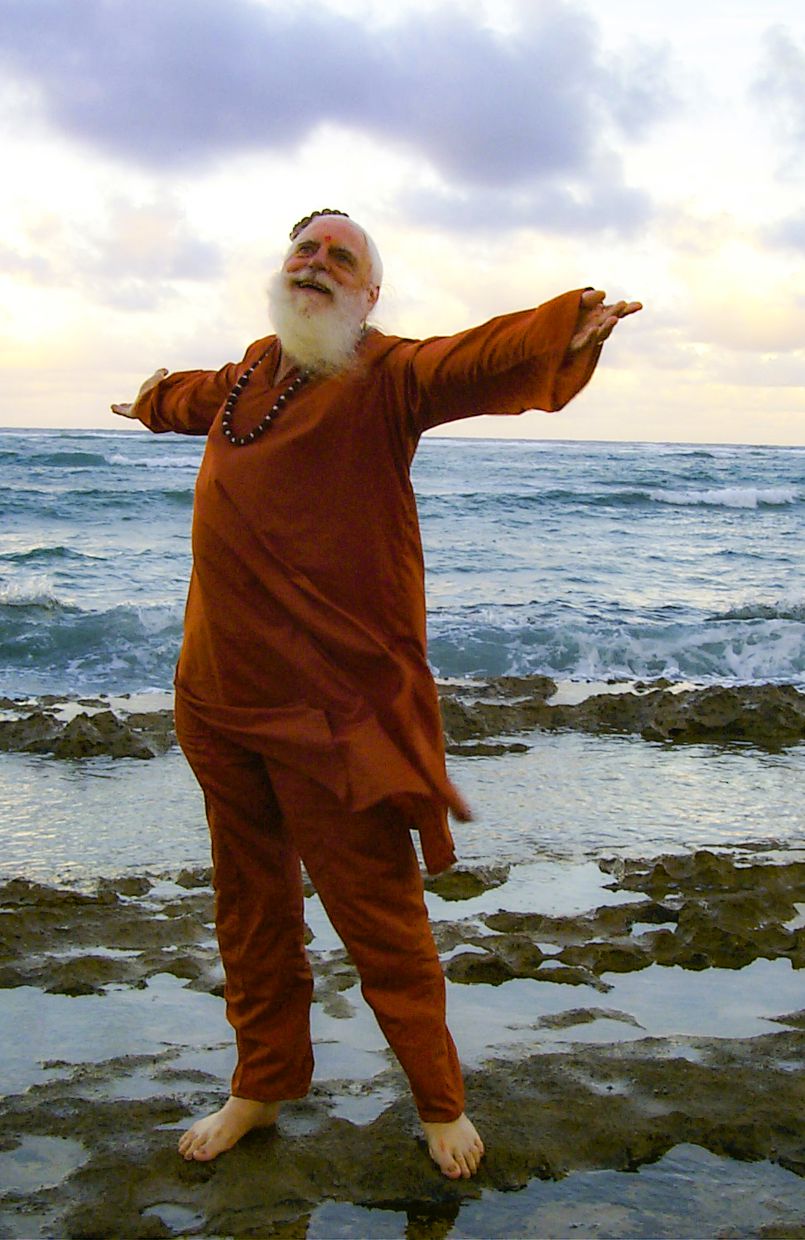
To better understand the vast concept of dharma, look upon it as the natural process by which the inherent perfection of the soul is unfolded and realized.
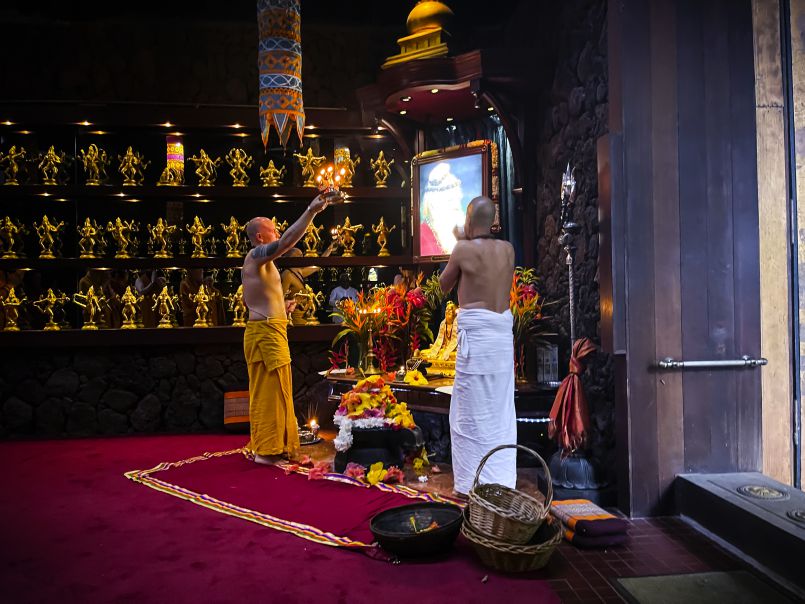
An acorn\
s natural pattern is to grow into a mighty oak, but the pattern for a rose is different. An acorn will never try to become a rose bush.'
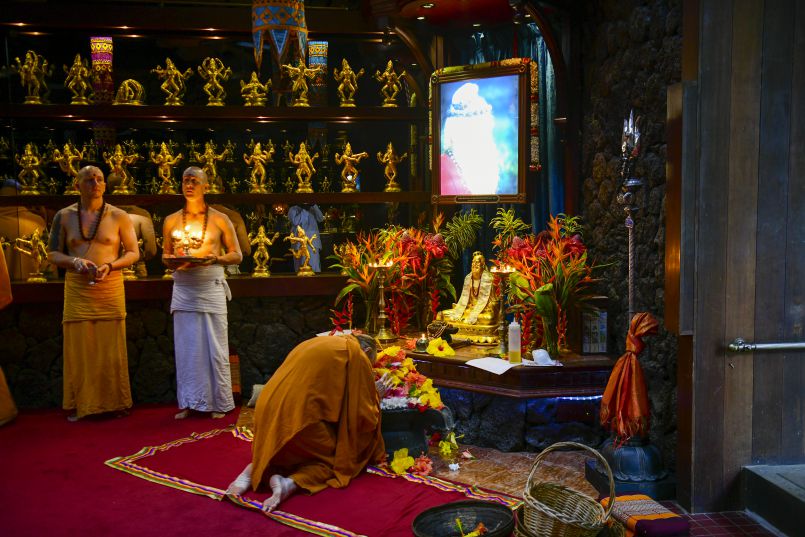
Aum
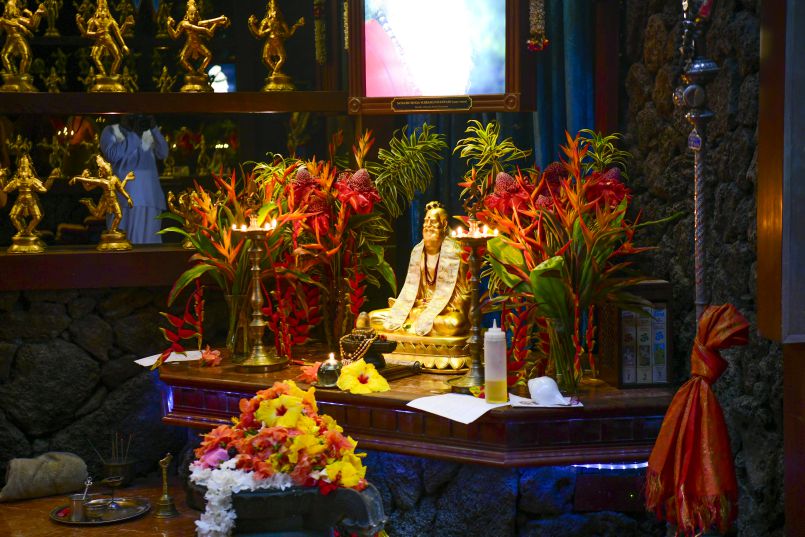
Namah
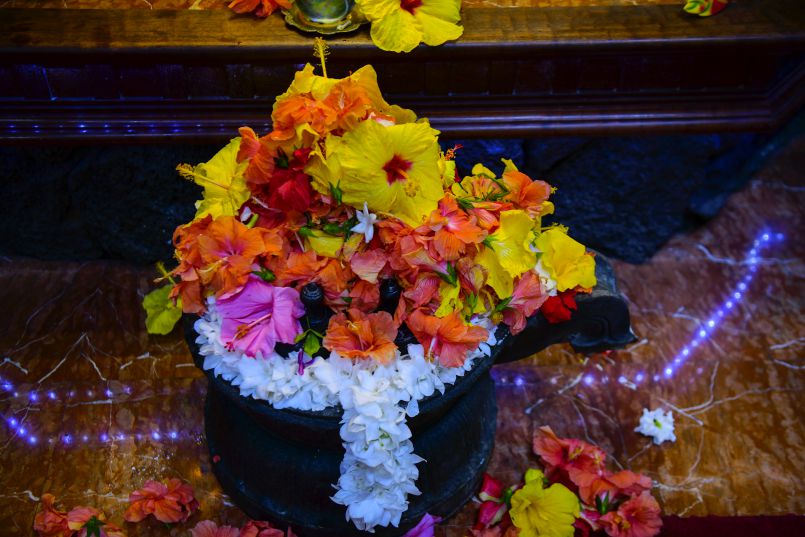
Sivaya
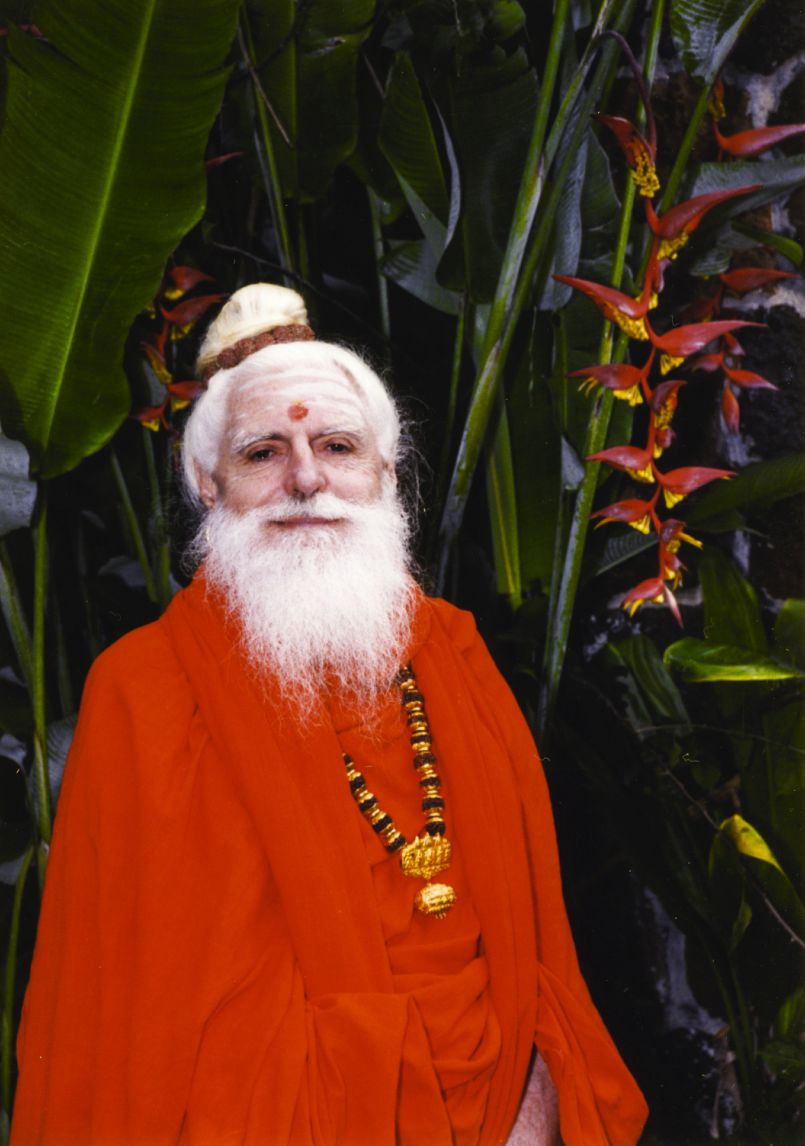
Aum.
}
];